Russia
South African President Cyril Ramaphosa, who is in Russia as part of a peace-seeking delegation, on Saturday, told his Russian counterpart Vladimir Putin that the conflict in Ukraine had to stop.
"This war must be settled... through negotiations and through diplomatic means," said Ramaphosa.
He added that his delegation, consisting of seven African leaders, "would like this war to be ended.
"This war is having a negative impact on the African continent and indeed on many other countries around the world," Ramaphosa said ahead of formal talks with the Russian president.
On Friday, the delegation held talks with Ukrainian President Volodymyr Zelensky in Kyiv.
"We have come to listen to you and through you to hear the voice of the Russian people," said Comoros President Azali Assoumani, who currently heads the African Union.
"We wanted to encourage you to enter into negotiations with Ukraine," he said.
African countries have been divided over their response to the conflict, with some siding with Ukraine, while others have remained neutral or gravitated towards Moscow.
Russian President Vladimir Putin on Saturday gave African leaders seeking to mediate in the war in Ukraine a list of reasons why he believed many of their proposals were misguided, pouring cold water on a plan already largely dismissed by Kyiv.
The African leaders were seeking agreement on a series of "confidence building measures", even as Kyiv last week began a counteroffensive to push back Russian forces from the swathes of southern and eastern Ukraine that they occupy.
Ukrainian President Volodymyr Zelenskiy said after meeting them in Kyiv on Friday that peace talks would require Moscow to withdraw its forces from occupied Ukrainian territory, something Russia has said is not negotiable.
Putin opened Saturday's talks with representatives of Senegal, Egypt, Zambia, Uganda, Congo Republic, Comoros and South Africa in a palace near St Petersburg by stressing Russia's commitment to the continent.
But after presentations from the Comoran, Senegalese and South African presidents, he stepped in to challenge the assumptions of the plan - predicated on acceptance of internationally recognised borders - before the round of statements could go any further.
Putin reiterated his position that Ukraine and its Western allies had started the conflict long before Russia sent its armed forces over the border in February last year, something they deny.
He said the West, not Russia, was responsible for a sharp rise in global food prices early last year that has hit Africa especially hard.
He told the delegation that Ukrainian grain exports from Black Sea ports that Russia has permitted for the past year were doing nothing to alleviate Africa's difficulties with high food prices because they had largely gone to wealthy countries.
And he said Russia had never refused talks with the Ukrainian side, which had been blocked by Kyiv. Moscow has, however, repeatedly said any peace must allow for "new realities", meaning its declared annexation of five Ukrainian provinces, four of which it only partially controls - a red line for Kyiv.
Russian Foreign Minister Sergei Lavrov said in televised remarks that Moscow shared the "main approaches" of the African plan, but Kremlin spokesman Dmitry Peskov was quoted by Russian news agencies as saying it was "difficult to realize".
Peskov said Putin had shown interest in the plan, whose 10 points South African President Cyril Ramaphosa laid out in his presentation, and Russia would continue dialogue with the African countries.
Lavrov said they had not brought the Russian leader any message from Zelenskiy.
Putin said Moscow was "open to constructive dialogue with anyone who wants to establish peace on the principles of fairness and acknowledgement of the legitimate interests of the parties".
There was no immediate word on the bilateral talks that Ramaphosa, host of a summit in August featuring Brazil, Russia, India, China and South Africa, had said he would have with Putin.
Since the International Criminal Court indicted Putin in March on war crimes charges - which he rejects - South Africa, as a member of the court, finds itself in the awkward position of being obliged to arrest him if he sets foot there.




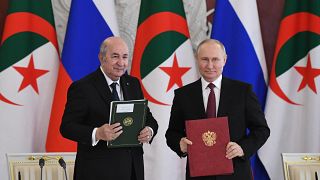
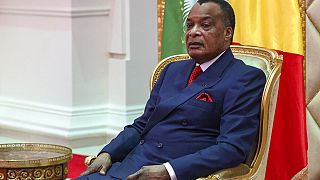
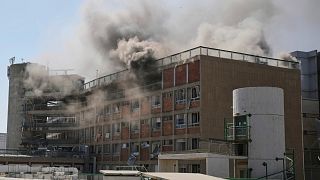
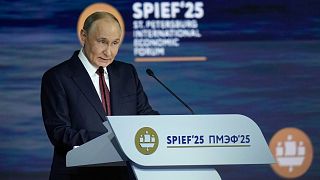
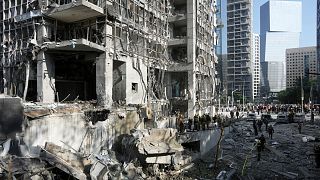



Go to video
Semenya ruling shakes foundations of gender rules in sport
02:35
Central African Republic's major rebel groups to disarm, dissolve
01:53
SMES under pressure as business confidence hits four-year low in South Africa
01:37
Top European court delivers series of damning rulings against Russia
01:07
30% on South African imports: Ramaphosa hits back at new Trump tariffs
01:00
Russian minister found dead hours after being dismissed